
Joyce Carol Oates is an American writer. Oates published her first book in 1963, and has since published 58 novels, a number of plays and novellas, and many volumes of short stories, poetry, and non-fiction. Her novels Black Water (1992), What I Lived For (1994), and Blonde (2000), and her short story collections The Wheel of Love (1970) and Lovely, Dark, Deep: Stories (2014) were each finalists for the Pulitzer Prize. She has won many awards for her writing, including the National Book Award, for her novel them (1969), two O. Henry Awards, the National Humanities Medal, and the Jerusalem Prize (2019).

Them is a novel by Joyce Carol Oates, the third in her "Wonderland Quartet" following A Garden of Earthly Delights (1967) and Expensive People (1968) and preceding Wonderland (1971). It was published by Vanguard in 1969 and it won the U.S. National Book Award for Fiction in 1970.
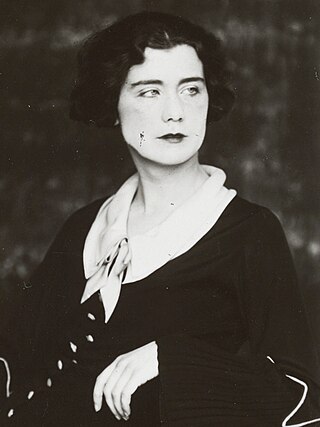
Lucia Anna Joyce was a professional dancer and the daughter of Irish writer James Joyce and Nora Barnacle. Once treated by Swiss psychiatrist Carl Jung, Joyce was diagnosed as schizophrenic in the mid-1930s and institutionalized at the Burghölzli psychiatric clinic in Zurich. In 1951, she was transferred to St Andrew's Hospital in Northampton, where she remained until her death in 1982. She was the aunt of Stephen James Joyce.

Angélique, the Marquise of the Angels is a 1956 novel by Anne Golon & Serge Golon, the first novel in Angélique series. Inspired by the life of Suzanne de Rougé du Plessis-Bellière, known as the Marquise du Plessis-Bellière.
"The Reach" is a short story by American writer Stephen King. First published in Yankee in 1981 under the title "Do the Dead Sing?", it was later collected in King's 1985 collection Skeleton Crew.
"Where Are You Going, Where Have You Been?" is a frequently anthologized short story written by Joyce Carol Oates. The story first appeared in the Fall 1966 edition of Epoch magazine. It was inspired by three Tucson, Arizona murders committed by Charles Schmid, which were profiled in Life magazine in an article written by Don Moser on March 4, 1966. Oates said that she dedicated the story to Bob Dylan because she was inspired to write it after listening to his song "It's All Over Now, Baby Blue". The story was originally named "Death and the Maiden".
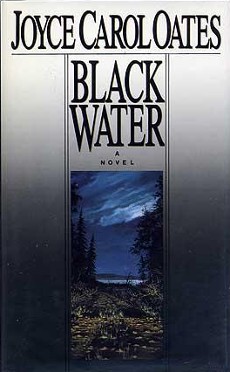
Black Water is a 1992 novella by the American writer and professor Joyce Carol Oates. It is a roman à clef based on the Chappaquiddick incident, in which U.S. senator Ted Kennedy crashed a car and caused the death by drowning of passenger Mary Jo Kopechne. The novella was a 1993 Pulitzer Prize finalist for fiction.
Une page d'amour is the eighth novel in the 'Rougon-Macquart' series by Émile Zola, set among the petite bourgeoisie in Second Empire suburban Paris. It was first serialised between December 11, 1877, and April 4, 1878, in Le Bien public, before being published in novel form by Charpentier in April 1878.

A Garden of Earthly Delights is a novel by Joyce Carol Oates, published by Vanguard in 1967. Her second book published, it is the first in her "Wonderland Quartet" followed by Expensive People (1968), them (1969), and Wonderland (1971). It was a finalist for the 1968 annual U.S. National Book Award for Fiction.

The Gravedigger's Daughter is a 2007 novel by Joyce Carol Oates. It is her 36th published novel. The novel was based on the life of Oates's grandmother, whose father, a gravedigger settled in rural America, injured his wife, threatened his daughter, and then committed suicide. Oates explained that she decided to write about her family only after her parents died, adding that her "family history was filled with pockets of silence. I had to do a lot of imagining."

Alice in Wonderland is a 1949 French film based on Lewis Carroll's 1865 fantasy novel Alice's Adventures in Wonderland. Directed by Dallas Bower, the film stars Carol Marsh as Alice, Stephen Murray as Lewis Carroll, and Raymond Bussières as The Tailor. Most of the Wonderland characters are portrayed by stop-motion animated puppets created by Lou Bunin.
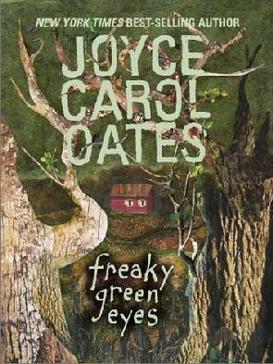
Freaky Green Eyes (2003) is the third young adult fiction novel written by Joyce Carol Oates. The story follows the life of 15-year-old Francesca "Franky" Pierson as she reflects on the events leading to her mother's mysterious disappearance. Through what she calls Freaky's thoughts, Franky accepts the truth about her mother's disappearance and her father's hand in it.

Son of the Morning is a 1978 novel by American author Joyce Carol Oates. The book was first published on August 1, 1978 through Vanguard Press.

The Little Red Chairs is a 2015 novel by Irish author Edna O'Brien, who was 85 at the time of publication. The novel is O'Brien's 23rd fictional publication.

Mudwoman is 2012 novel by Joyce Carol Oates. The novel is a psychological horror and campus novel, which follows the experience of a university president, M.R. Neukirchen, "haunted by her secret past as the child of a poor, mentally ill religious fanatic who tried to drown her in a riverside mudflat".
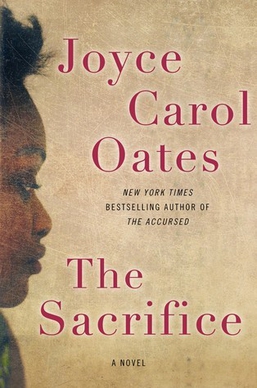
The Sacrifice is a 2015 novel by the American writer Joyce Carol Oates. Set in blighted urban New Jersey in the 1980s, it follows a young Black woman, Sybilla, who is discovered in a degraded condition in an abandoned factory after going missing. When she alleges that she was kidnapped, assaulted, and left for dead by a group of white police officers, her cause is taken up by an ambitious and unscrupulous civil rights activist and his lawyer brother, despite evidence of deceit in her story. The events of the novel are based on the real-life Tawana Brawley case, and takes place in a part of New Jersey still suffering from the aftermath of post-war deindustrialization and the 1967 Newark riots.
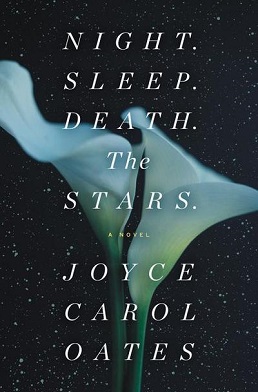
Night. Sleep. Death. The Stars. is a 2020 novel by American writer Joyce Carol Oates, about a man who was killed by the police and the aftermath of his death on his family. Its title comes from a poem by Walt Whitman.
The Poisoned Kiss and Other Stories from the Portuguese is a collection of short stories written by Joyce Carol Oates. It was published in 1975 by Vanguard Press.
Unholy Loves is a novel written by Joyce Carol Oates. It was published in 1979 by Vanguard Press. In an interview Oates called it "an academic comedy set at an upstate New York university larger than Bennington, smaller than Cornell, prestigious yet not quite competitive with Harvard, Princeton, and Yale."
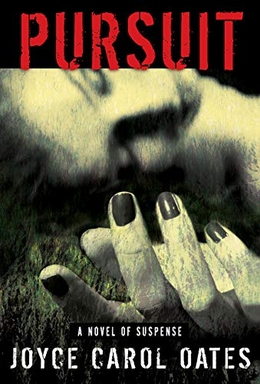
Pursuit is a 2019 thriller and suspense novel by Joyce Carol Oates. It was published in the United States by Mysterious Press on October 1, 2019.














